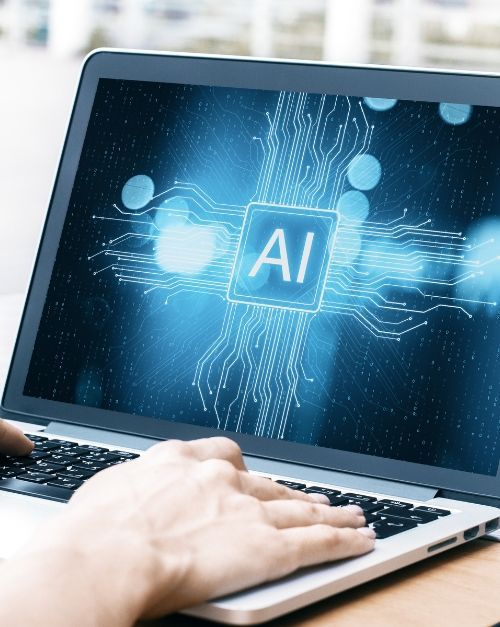Article
AI & Automation
The Transformative Power of AI and Automation Across Industries:
Artificial intelligence (AI) and automation are revolutionizing major industries, driving unprecedented levels of efficiency, innovation, and customer-centricity. From banking to healthcare, manufacturing to retail, these technologies are reshaping traditional business models and unlocking new possibilities.
Banking: Enhancing Security and Personalization
The banking industry has embraced AI and automation to improve security, streamline operations, and deliver personalized customer experiences:
Fraud Detection: AI algorithms analyze transaction patterns in real-time, flagging suspicious activities with greater accuracy than ever before. This proactive approach has significantly reduced financial losses due to fraud.
Chatbots and Virtual Assistants: AI-powered chatbots provide 24/7 customer support, handling routine inquiries and transactions. This improves response times and allows human agents to focus on more complex issues.
Personalized Financial Advice: By analyzing customer data and market trends, AI systems can offer tailored investment recommendations and financial planning advice.
Process Automation: Robotic Process Automation (RPA) has streamlined back-office operations, reducing errors and processing times for tasks like loan approvals and account openings.
Healthcare: Improving Diagnosis and Patient Care
In healthcare, AI and automation are enhancing diagnostic accuracy, treatment planning, and patient monitoring:
Medical Imaging Analysis: AI algorithms can detect anomalies in X-rays, MRIs, and CT scans with remarkable precision, assisting radiologists in early disease detection.
Predictive Analytics: By analyzing patient data and medical histories, AI can predict health risks and recommend preventive measures.
Robotic Surgery: AI-assisted robotic systems enable surgeons to perform minimally invasive procedures with enhanced precision and control.
Drug Discovery: AI accelerates the drug discovery process by analyzing vast datasets to identify potential therapeutic compounds.
Manufacturing: Optimizing Production and Quality Control
The manufacturing sector has seen a dramatic transformation through AI and automation:
Predictive Maintenance: AI systems analyze sensor data from machinery to predict equipment failures before they occur, reducing downtime and maintenance costs.
Quality Control: Computer vision and machine learning algorithms inspect products at high speeds, identifying defects with greater accuracy than human inspectors.
Supply Chain Optimization: AI-powered systems analyze market demand, inventory levels, and logistics data to optimize supply chain operations and reduce waste.
Collaborative Robots (Cobots): Advanced robots work alongside human workers, handling repetitive or dangerous tasks while improving overall productivity.
Retail: Personalizing the Shopping Experience
In retail, AI and automation are creating more engaging and efficient shopping experiences:
Personalized Recommendations: AI algorithms analyze customer behavior and preferences to offer tailored product recommendations, increasing sales and customer satisfaction.
Inventory Management: Automated systems use predictive analytics to optimize stock levels, reducing overstock and stockouts.
Dynamic Pricing: AI-driven pricing strategies adjust prices in real-time based on demand, competition, and other factors to maximize revenue.
Cashierless Stores: Advanced computer vision and sensor technologies enable checkout-free shopping experiences, as pioneered by Amazon Go stores.
The Road Ahead: Challenges and Opportunities
While the benefits of AI and automation are clear, their implementation comes with challenges:
Data Privacy and Security: As these technologies rely heavily on data, ensuring robust data protection measures is crucial.
Workforce Transition: As automation replaces certain jobs, industries must focus on reskilling and upskilling their workforce for new roles.
Ethical Considerations: The use of AI in decision-making processes raises important ethical questions that need to be addressed.
Integration Complexity: Implementing AI and automation often requires significant changes to existing systems and processes.
Despite these challenges, the potential of AI and automation to drive innovation and efficiency across industries is immense. As these technologies continue to evolve, we can expect even more transformative applications that will reshape the way we work, live, and interact with the world around us.
Organizations that successfully navigate the AI and automation revolution will be well-positioned to thrive in an increasingly competitive and technology-driven landscape. By embracing these technologies thoughtfully and strategically, businesses can unlock new levels of productivity, innovation, and customer satisfaction, setting the stage for a more efficient and intelligent future.







